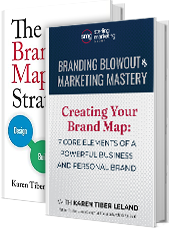
Find out the critical importance of personal branding for CEOs, highlighting its potential impact on business success. Learn actionable tips and strategies for CEOs to build a powerful personal brand, emphasizing authenticity, audience targeting, platform selection, and learning from successful examples.
The Ultimate Guide to Personal Branding for CEOs: Tips and Strategies for Success
As a CEO, your personal brand matters just as much as the brand of your company. Building a strong personal brand can have a huge impact on the success of your business. Personal branding is all about showcasing your unique strengths and values and building a loyal following of customers and supporters. In this ultimate guide to personal branding for CEOs, we’ll explore the tips and strategies that can help you create a powerful personal brand that sets you apart from the competition.
Crafting Your Personal Branding Strategy
Before you can start building your personal brand, you need to have a clear strategy in place. Start by identifying your unique strengths and values – the things that set you apart from other CEOs. Consider your professional experience, your personal passions, and the things you care most about. These are the things that will form the foundation of your personal brand.
For example, if you have a background in finance and a passion for sustainability, you might focus your personal brand on the intersection of finance and sustainability. You could showcase your expertise in sustainable investing or share your thoughts on how businesses can balance profitability with environmental responsibility.
Once you’ve identified your key strengths and values, you need to think about how to showcase them. This is where authenticity comes in. Your personal brand should reflect who you truly are, not just a manufactured persona. Be honest, be vulnerable, and be yourself.
For example, if you’re a CEO who struggled with imposter syndrome earlier in your career, sharing that story can help others who are going through the same thing. By being vulnerable and sharing your struggles, you can build a deeper connection with your audience.
Another important aspect of your personal branding strategy is identifying your target audience. Who are the people you want to reach with your personal brand? What are their needs and interests? Understanding your audience is key to creating a personal brand that resonates with them.
For example, if you’re a CEO who is passionate about empowering women in business, your target audience might be other women in leadership positions. You could focus your personal brand on sharing stories of successful women in business, or providing tips and advice for women who are looking to advance their careers.
Finally, you need to choose the right platform to showcase your personal brand. Whether it’s social media, a personal blog, or speaking engagements, the platform you choose should align with your personal brand and your target audience.
For example, if you’re a CEO who is passionate about sustainability, you might use social media to share news and insights about sustainable business practices. If you’re a CEO who is an expert in a particular field, you might use speaking engagements to share your knowledge and establish yourself as a thought leader.
The Importance of Authenticity in Personal Branding

As we mentioned earlier, authenticity is one of the most important aspects of personal branding. In today’s world, consumers are looking for genuine connections with the brands they support. They want to know the people behind the brands, and they want to feel like they’re part of a community.
Being authentic means more than just sharing your personal stories and values, though. It also means being consistent in your messaging and actions. If you say you care about sustainability, for example, but your company engages in environmentally harmful practices, your audience will quickly lose trust in you.
Being authentic also means admitting when you don’t know something or when you make a mistake. This can be difficult for some CEOs, who are used to always projecting an air of authority and confidence. However, admitting your shortcomings can make you more relatable and trustworthy in the eyes of your audience.
Identifying Your Target Audience for Effective Branding
Identifying your target audience is another crucial aspect of personal branding. To build a following of loyal customers and supporters, you need to understand who your audience is and what they’re looking for.
Start by thinking about the demographics of your target audience. Are they primarily male or female? What age range do they fall into? What are their education levels and income levels?
Once you have a basic understanding of your audience’s demographics, you can start to dig deeper into their needs and interests. What are their pain points? What problems do they need help solving? What topics do they care most about?
For example, if your target audience is young professionals who are just starting their careers, they might be interested in learning about networking, job searching, and career development. By tailoring your personal brand messaging to address these topics, you can build a connection with your audience and establish yourself as a valuable resource.
Choosing the Right Platform to Showcase Your Brand
There are countless platforms you can use to showcase your personal brand, from social media to personal blogs to speaking engagements. However, not all platforms are created equal. To choose the right platform for your personal brand, you need to consider your target audience and your personal strengths.
Social media is a great platform for reaching a wide audience and building a community of supporters. However, it can also be time-consuming and overwhelming if you’re not a natural communicator. Personal blogs and podcasts are a great option if you enjoy writing or speaking and want to showcase your expertise. Speaking engagements can be a powerful way to establish your authority and credibility.
When choosing a platform, it’s important to consider both the short-term and long-term impact on your personal brand. Choose a platform that aligns with your personal brand and your goals, and that you feel comfortable using on an ongoing basis.

Learning from the Best: Successful Personal Branding Examples
When it comes to personal branding, there’s no one-size-fits-all approach. However, there are plenty of successful examples out there to learn from. By examining the strategies used by some of the most authentic and effective personal brands, you can gain valuable insights into how to build your own brand and connect with your audience.
The Secrets Behind the World’s Most Authentic Brands
If there’s one thing that all successful personal brands have in common, it’s authenticity. People can spot a fake a mile away, and they’re not interested in following someone who’s not being true to themselves. Authenticity is about being transparent, honest, and vulnerable. It’s about having a strong sense of purpose and values and being willing to let your true self shine through.
One of the most authentic personal brands out there is Oprah Winfrey. Oprah has built her brand around her values of empathy, kindness, and personal growth. She’s not afraid to share her own struggles and vulnerabilities, and she’s always striving to be a better person. This authenticity has earned her a loyal following of millions of fans around the world.
Tony Robbins is another example of an authentic personal brand. Robbins is known for his high-energy seminars and motivational speeches, but what sets him apart is his genuine desire to help people. He’s open about his own struggles with addiction and depression, and he uses his platform to inspire others to overcome their own challenges.
Richard Branson is another example of an authentic personal brand. Branson has built his brand around his values of adventure, innovation, and social responsibility. He’s not afraid to take risks or speak out on controversial issues, and he’s always looking for ways to make a positive impact on the world.
How to Build a Loyal Customer Base Through Effective Brand Messaging

Building a personal brand is all about establishing a loyal following of customers and supporters. To do this, you need to have a clear brand message that resonates with your audience. Your brand message should be authentic, compelling, and relevant to your target audience.
One of the most successful personal brands out there is Simon Sinek. Sinek’s “Start With Why” message has resonated with millions of people around the world because it speaks to a common human need for purpose and meaning. Sinek argues that the most successful brands are those that focus on why they do what they do, rather than what they do or how they do it. By focusing on the “why,” brands can connect with their audience on a deeper level and build a loyal following of customers and supporters.
Another example of a successful brand message is Nike’s “Just Do It” slogan. This message is simple, powerful, and inspiring. It speaks to the brand’s values of determination, perseverance, and excellence, and it resonates with athletes and fitness enthusiasts around the world.
Building a successful personal brand takes time, effort, and dedication. By learning from the strategies used by some of the most successful personal brands out there, you can develop your own authentic brand message and connect with your audience on a deeper level.
The Bottom Line
Building a personal brand as a CEO is essential for success in today’s business world. By crafting a clear personal branding strategy, being authentic, identifying your target audience, and choosing the right platform to showcase your brand, you can establish a personal brand that sets you apart from the competition and resonates with your audience.
One of the key components of building a successful personal brand is authenticity. Your personal brand should reflect who you are as a person and what you stand for. This means being honest about your strengths and weaknesses and being transparent about your values and beliefs.
Another important factor to consider when building your personal brand is your target audience. Who are you trying to reach with your brand? What are their needs and interests? By understanding your audience, you can tailor your messaging and content to better resonate with them.
Choosing the right platform to showcase your personal brand is also crucial. Whether it’s LinkedIn, Twitter, or Instagram, each platform has its own unique strengths and weaknesses. Consider which platform is most popular among your target audience, and which one allows you to best showcase your skills and expertise.
Looking to successful personal brands for inspiration can also be helpful. Take note of what makes their branding effective and consider how you can apply those principles to your own brand. However, it’s important to remember that your personal brand should ultimately reflect your own unique personality and values.
By following these tips and staying true to yourself, you can establish a personal brand that sets you apart from the competition and resonates with your audience. So start crafting your personal branding strategy today, and watch as your brand (and business) grows and flourishes.
How SMG Helps Our Clients To Meet These Challenges.
For more than 20 years, I have helped CEOs, C-Suite executives, entrepreneurs, and start-up founders create and implement business and personal brands based on their thought leadership. Much of what I’ve learned about this topic comes from up close and in the fieldwork with leaders from companies such as Apple, Google, LinkedIn, Marriott Hotel Group, Johnson, Johnson, American Express, and many more.
At one point, I had so much information in my head that I just had to get it down on paper. That is how I wrote my twelfth traditionally published book, The Brand Mapping Strategy: Design, Build and Accelerate Your Brand, and gave a TEDx Talk on the unique contribution that underlies each of our personal brands.
As an author and columnist for Inc.com, I constantly search for studies, surveys, real-world examples, and techniques to help my clients achieve stronger brands that make them stand out for their thought leadership in the marketplace. In this article, I have aimed to share some of the most important things I have discovered about executive thought leadership.
If, after reading this article, you find yourself thinking, “yes, I get it, I need to do this,” but are in a quandary about how to get there, consider booking an initial consultation with me at no charge.
I will review your executive thought leadership before our call and give you at least one or two specific ideas you can use to build a better personal brand: no sales, just useful information and insight. You can book a session with me here.
